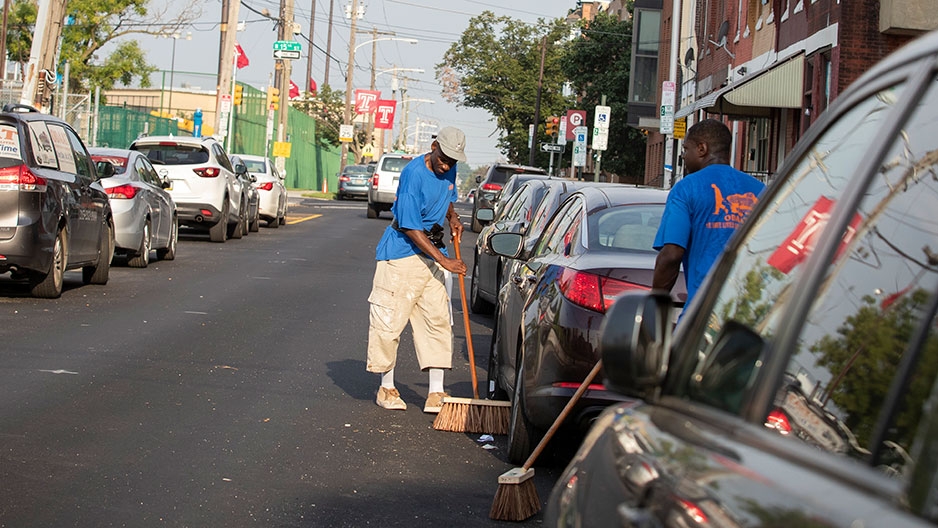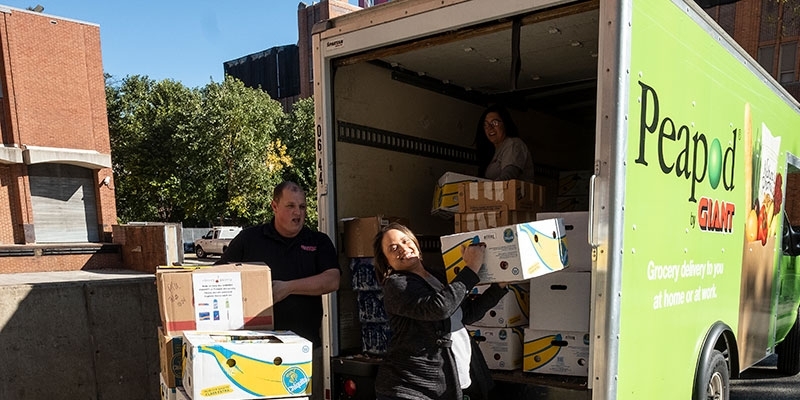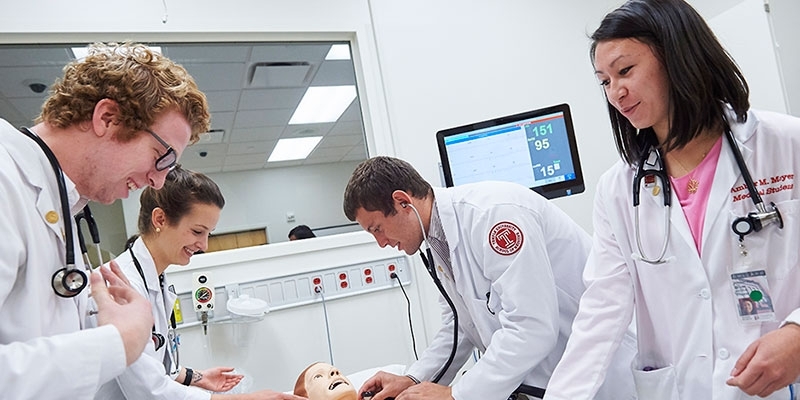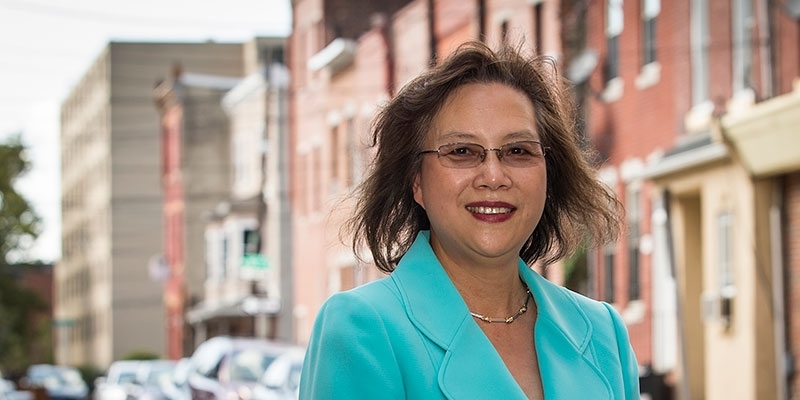Temple tackles trash problem block by block
Temple is collaborating with the One Day at a Time recovery program to clean up nearby streets.

The sun is rising on a chilly fall morning just north of Norris and 16th streets. College students with coats and backpacks walk briskly down the sidewalk to early morning classes.
Ten mostly middle-aged men in matching shirts are sweeping up, putting trash into garbage bags and Bill Williams—though it's just outside his job description—is quickly ripping out a long row of weeds alongside a chain-link fence.
"Bill doesn't like weeds!" supervisor Malik Williams bellows with a wide smile.
Both Malik and Bill Williams—no relation to each other—are working for One Day at a Time (ODAAT), a nonprofit that specializes in drug and alcohol recovery programs, transitional housing and services for the homeless. They each have been recovery program participants, too.
This Temple-funded contract, a new one for ODAAT, calls for trash cleanup primarily in the residential area northwest of Temple’s campus, specifically Norris to Dauphin and 18th Street to Broad, and to report larger issues—like furniture in need of pickup, lots in need of cleanup and the occasional abandoned vehicle—to the city.
Grass and weeds are out of scope for the cleanup contract, but Bill Williams can't help himself when he sees them pushing through the fence and onto the sidewalk.
"Blessings are in the extra things you do—going that extra step," Malik Williams explained. "Sometimes we get creative to make Temple happy and the community happy."
"For a long time, I had the wrong motivation," Bill Williams said. "For 45 years, I tried to run these streets. Now I'm surrounded by a lot of positive people, and that's motivation to be positive too."
Of the now weedless fence and spotless sidewalk behind the ODAAT crew, he said, "I like to be satisfied with my efforts."
Many of these ODAAT workers grew up nearby and have seen both their lives and their neighborhood change in dramatic ways.
Manny—who preferred to not share his full name—at 58 years old said this ODAAT job is the first legitimate one of his life. He rattled off the names of gangs who ran turf here before a truce in the mid-1970s ended the gang wars.
"It was a mess down here," Manny said.
A student on the way to class weaves around the brooms and dustpans, seemingly a universe away from Manny's description of the old days here. ODAAT, through its contract with Temple, is helping put the entire crew on a better track as they clean the neighborhood.
"If you don't change your thinking, you'll be in the same place," Manny said. "And with community support," he added, "you can't go wrong."
That's a lesson Temple’s administration is embracing as well, as it strives to do a better job responding to the concerns of its nearest neighbors.
"I had never seen trash like that before in my life," said Bill Bergman, Temple's vice president of public affairs, referencing Temple’s move-out last summer.
In response to community feedback, Bergman and Temple President Richard M. Englert personally walked the neighborhood during the annual student move-out and were appalled by the quantity of discarded furniture and trash that piled up all at once.
"Frankly, we were amazed and disappointed by the amount of trash that had accumulated," Englert said. "Our neighbors deserve better, and we are moving aggressively to give them the best."
Temple's administration took new measures, including working with the city to secure additional trash pickups at its most impacted times of the year, and hiring local organizations like ODAAT to provide additional cleanup support this fall.
“The cleanliness of our streets is a quality-of-life issue that affects all Philadelphia residents," Bergman said. "We’re excited about our collaboration with One Day at a Time, which is the latest example of us partnering with our neighbors to address this problem.”
Neighborhood quality of life, including cleanups and beautification, is also at the heart of a special services district the university is now organizing with nearby residents.
"I don't know if the university knows the impact it's really making," ODAAT President Mel Wells said at the ODAAT headquarters at Broad and Huntingdon.
"Projects like these touch the heartbeat of the community," Wells said. "It saves men from ending up back on the streets. It saves them from going back out and overdosing."
Wells knows first-hand the power of channeling negative energy into positive. He was 6 years old when his dad, the late Rev. Henry T. Wells, completed a recovery program for his own crack addiction and founded the first ODAAT rehabilitation house in their home at 16th and York.
In the more than three decades since, that effort has expanded to multiple rehabilitation centers and shelters throughout the city, thousands of ODAAT graduates and a global partnership with Hope Worldwide.
“It’s about becoming a whole new person, and resurrecting a new you,” Wells said.
Wells saw his father rise out of drug addiction, into a life of service and into a place of honor encapsulated in a moment now framed on the wall of the office hallway. The photo features the Rev. Wells alongside Philadelphia’s most prominent politicians and a visiting Nelson Mandela.
“My father was the epitome of a new you,” Wells said.
ODAAT’s contract with Temple currently includes three cleanup days a week and an engaged crew of men excited about their impact.
“It’s all about the snowball,” said Malik Williams, who’s seen the team’s pace pick up since they addressed the worst trash buildup on their first pass around the neighborhood.
And Malik’s encouragement is rubbing off on the crew, too.
“[Malik] saw more in me than I saw in myself,” Bill Williams said. “Now I’m trying to seek the positive out.”
—Andy Lochrie


